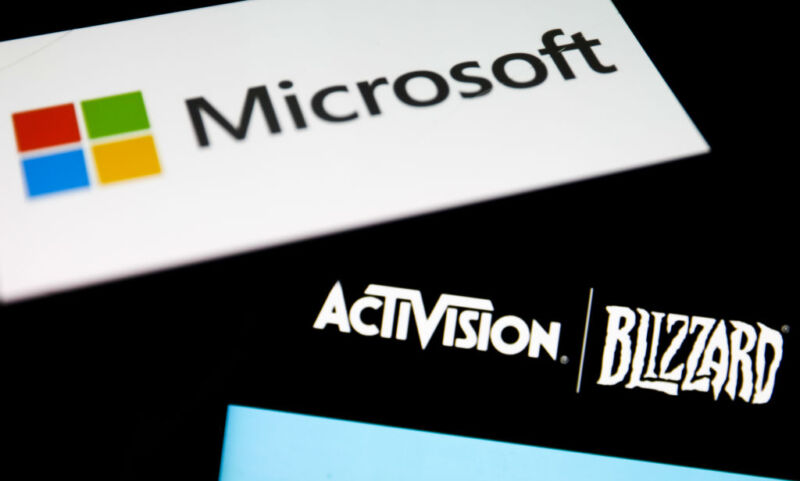Microsoft/Activision deal will win EU approval, sources say

Last fall, it looked like trouble for Microsoft when the European Union launched an in-depth investigation into its acquisition of Activision, but it now seems that Microsoft will emerge victorious. Three people familiar with the European Commission’s opinion on the matter told Reuters that, by agreeing to make a few more concessions, Microsoft will likely win EU antitrust approval on April 25.
According to Reuters, the European Commission is not expected to ask Microsoft to divest large parts of Activision—like separating out its Call of Duty business—to win approval. Instead, long-term licensing deals of lucrative games that Microsoft has offered to rivals could suffice, in addition to agreeing to “other behavioral remedies to allay concerns of other parties than Sony,” one insider told Reuters.
Microsoft declined Ars’ request to comment, but the company told Reuters that it is “committed to offering effective and easily enforceable solutions that address the European Commission’s concerns.” Microsoft has previously opposed any proposed remedies forcing the merged companies to sell the Call of Duty franchise.
Earlier this month, the United Kingdom indicated that its antitrust approval of the acquisition might depend on such a sale. An Activision spokesperson told Ars at that time that the company hoped to help the UK government “better understand our industry” to avoid selling Call of Duty or breaking up other parts of Activision’s business.
Microsoft got its big chance to sway the UK this week when it attended a private hearing with UK’s antitrust watchdog, the Competition and Markets Authority (CMA), to discuss “feasible remedies,” Bloomberg reported. Sources said that Microsoft offered to pay a third-party monitor to oversee the company’s compliance with any behavioral remedies proposed by the UK to approve the deal. The CMA is expected to make its decision on April 26.
This hearing followed a closed-door meeting with the EU during which Microsoft President Brad Smith seemingly successfully argued that the merger would not be “feasible or realistic” if Call of Duty weren’t part of the acquisition, Bloomberg reported.
If the European Commission approves the deal based largely on Microsoft’s plan to offer rivals long-term licensing deals, the commission’s decision could influence other government agencies scrutinizing the deal.
“Our commitment to grant long-term 100 percent equal access to Call of Duty to Sony, Steam, Nvidia, and others preserves the deal’s benefits to gamers and developers and increases competition in the market,” a Microsoft spokesperson told Reuters.
The UK isn’t the only body not yet convinced by Microsoft’s proposed solution that licensing deals will remedy anticompetitive concerns. When the United States Federal Trade Commission moved to block the deal last December, the FTC’s director of the Bureau of Competition, Holly Vedova, warned that Microsoft can’t always be trusted to share its most lucrative titles with rivals. “Microsoft has already shown that it can and will withhold content from its gaming rivals,” Vedova wrote in an FTC complaint.
An Activision spokesperson told Ars that the merger would help the company continue to make multi-platform games that can compete in an “industry dominated by growing competitors.” Activision’s spokesperson also said that the solutions Microsoft has presented “are legally binding, and beyond that, our passionate player community would hold Microsoft accountable for keeping its promises.”
The FTC is scheduled to review the deal at an evidentiary hearing on August 2.
https://arstechnica.com/?p=1921598